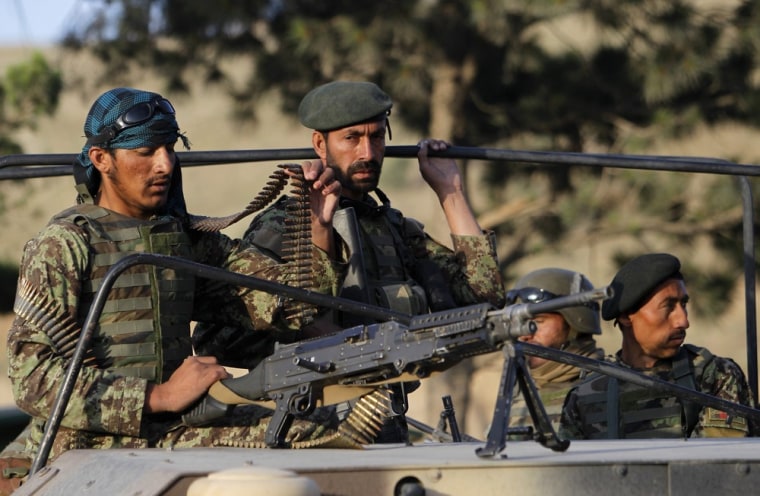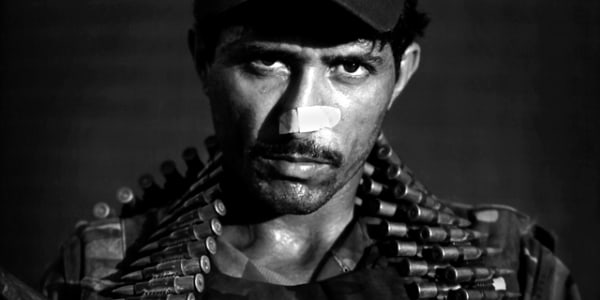A third of Afghan national security forces are taking basic lessons in reading and counting as NATO commanders accelerate their training ahead of the withdrawal of most foreign troops in 2014, the coalition has said.
More than 95 percent of recruits in the Afghan national army and police are functionally illiterate, having never been to school, so are sent on a beginner's course to teach them how to write their name and count to 1,000 in their mother tongue.
Afghan forces, which hit a strength of 343,000 men in April as part of a rapid build-up, are set to take over security responsibilities by the middle of next year as a deadly Taliban insurgency rages.
The widespread absence of elementary reading and counting skills in a nation torn by three decades of war has slowed their training and their ability to do the job, underscoring the challenges facing Afghanistan after the bulk of Western military support is withdrawn.
Slideshow 10 photos
Soldiers of the Afghan National Army
"For many in Afghanistan, because of 30 years of war they have had little access to information, education. They know a lot but they don't know how to read or write," said Barbara Goodno, chief of the literacy and language division at NATO's training mission in Afghanistan.
"What we are trying to do is to jump-start the process," she said.
On Friday, Afghan forces battled Taliban gunmen who were holding hostages overnight in a popular lakeside hotel on the outskirts of Kabul.
'A matter of life and death'
About 119,000 Afghan soldiers and police are undergoing a three-stage literacy program which aims to teach them writing, reading and counting skills equivalent to students aged eight in the third grade of the Afghan school system.
NATO said a 2009 survey found that the Afghan national army, which is considered the most professional of all the country's forces and the spearhead of the fight against the Taliban, had a literacy rate of 13 percent. The police were assumed to be little better, on the basis of the army survey.
The coalition said it was not aware of a follow-up study, but its assumption was the figure would have risen since then, though there was no hard statistical data.
The soldiers can neither read nor write at the start of the literacy course, so instructors have to explain everything in pictures. All training is manual and every skill has to be demonstrated, commanders say.
Troops are unable to read instructions on how to maintain a vehicle, fill out a form for the issue of equipment, or read a serial number to distinguish their weapon from another - all basic soldiering duties anywhere in the world.
"If you have someone who is injured and they are unable to read a map and to provide their location to get picked up, it's a serious problem. That is a matter of life and death," said Goodno.
"If you have an individual, a police officer who is responsible for enforcing laws that they are unable to read, and they are unable to write a report, that is a matter of life and death."
Afghanistan's overall literacy rate is 37 percent, ranking 117 out of 123 nations.
Some 3,000 Afghan teachers have been hired as part of a $200 million program for basic literacy funded by Japan, Britain, Finland and the United Arab Emirates until 2014.
"Training is difficult, it does not happen quickly or easily," Goodno said.

